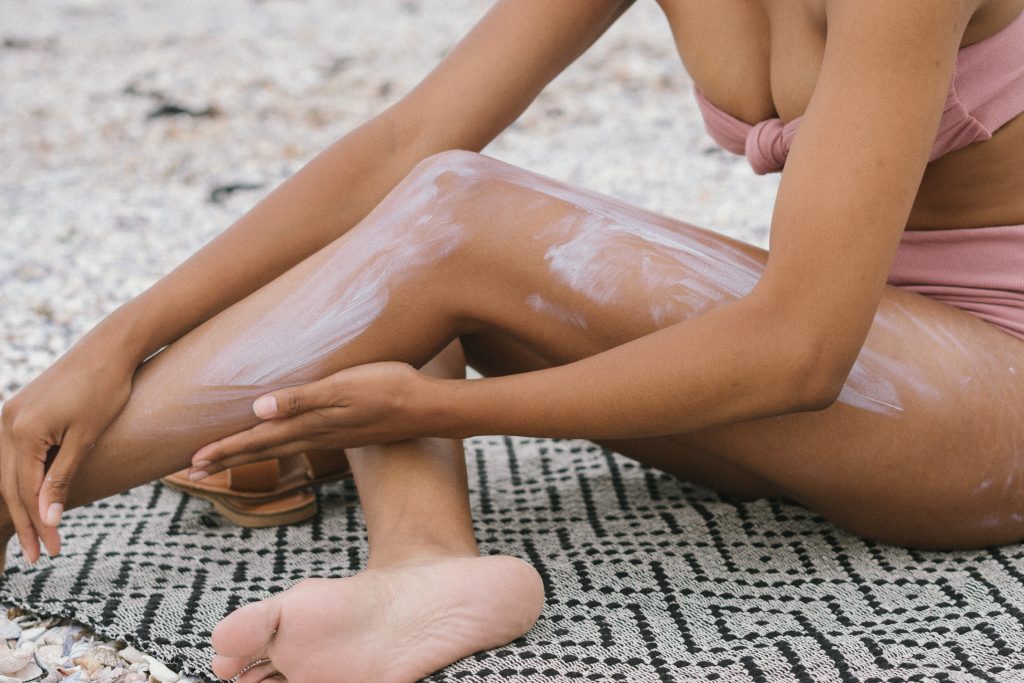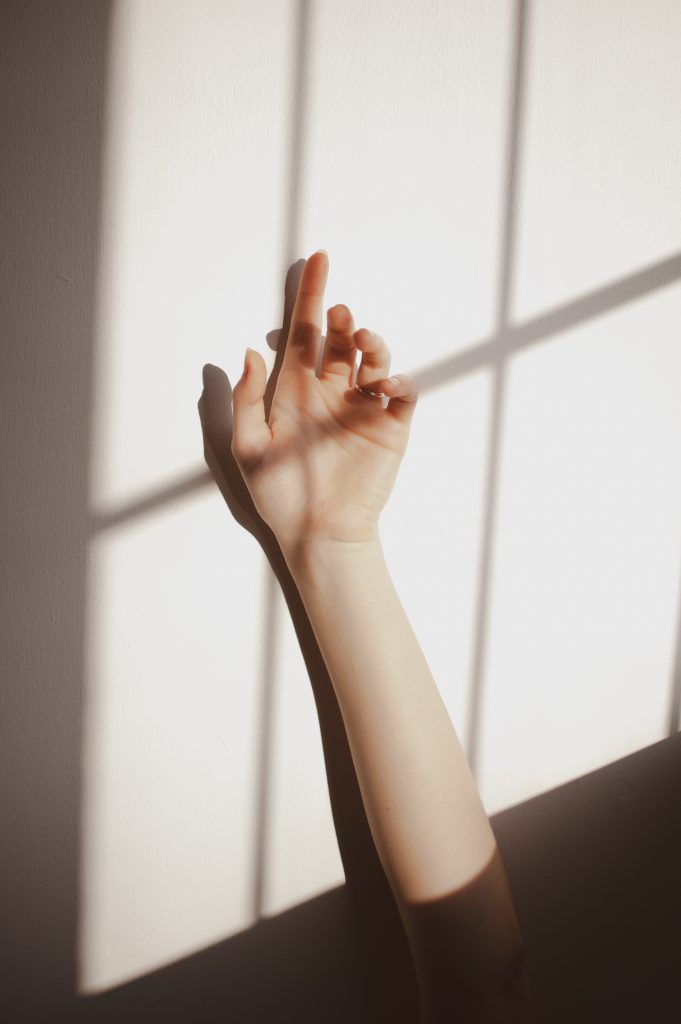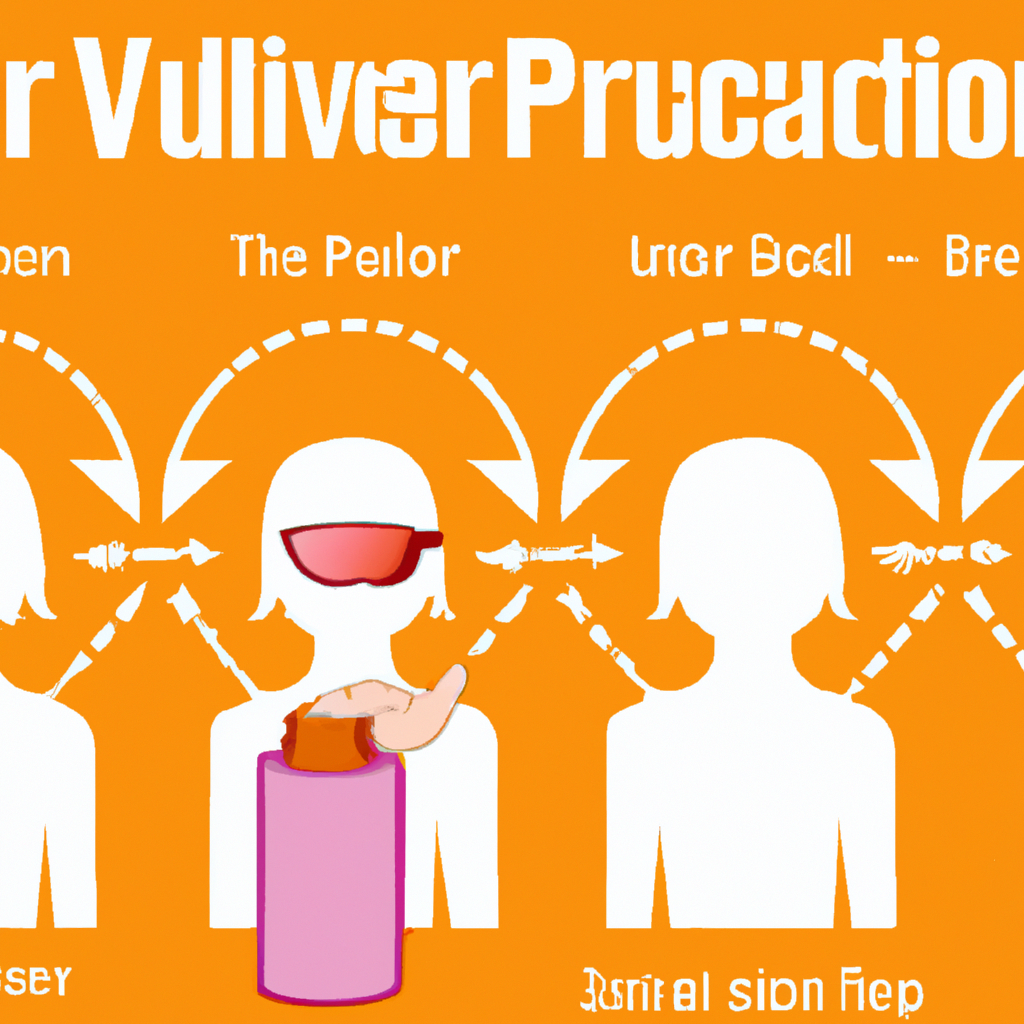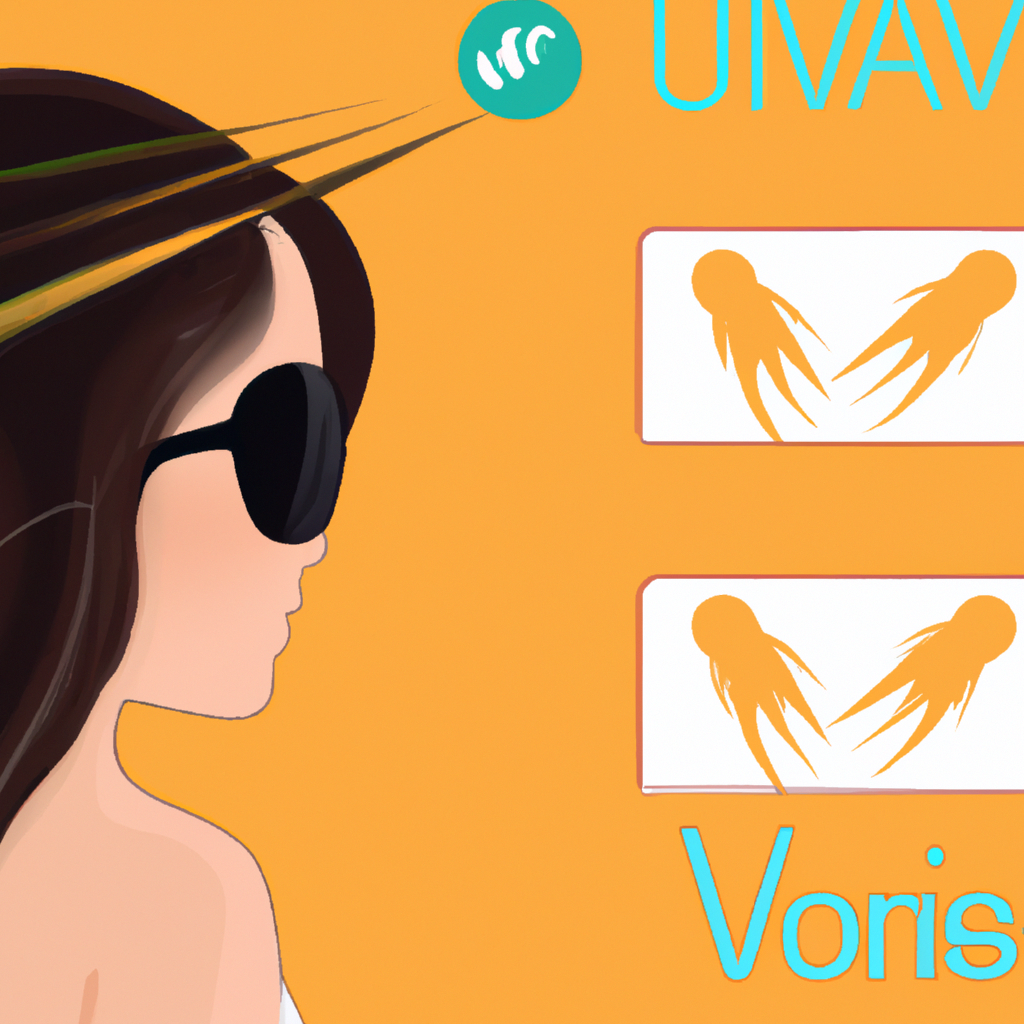Imagine lounging on a beautiful sunny day, feeling the gentle warmth of the sun on your skin. All seems perfect, until you remember the potential damage that harsh UV rays can cause to your hair. But worry not, for there are simple yet effective ways to shield your luscious locks from this harmful exposure. By following a few practical tips and incorporating some hair care essentials into your routine, you can keep your hair healthy, vibrant, and protected from the sun’s harmful rays.

Understanding the Effects of UV and Sun Exposure on Hair
Understanding UV Rays and Sun Exposure
UV (ultraviolet) rays are a form of electromagnetic radiation that come from the sun. There are three types of UV rays: UVA, UVB, and UVC. UVA rays have a longer wavelength and can penetrate deep into the skin, causing premature aging and damage. UVB rays have a shorter wavelength and primarily affect the outer layers of the skin, leading to sunburn and skin cancer. UVC rays are blocked by the Earth’s ozone layer and do not reach our skin.
When it comes to hair, prolonged exposure to UV rays can have damaging effects. UV radiation can break down the protein structure of the hair strand, causing it to become weak, brittle, and prone to breakage. It can also cause color fading and dullness, making your hair lose its vibrancy and shine.
Effects of UV and Sun Exposure on Hair
Sun exposure can affect your hair in several ways. The first is by causing structural damage to the hair strand. UV rays can break down the proteins that make up the hair, leading to weaker and more fragile strands. This can make your hair more prone to split ends and breakage.
UV radiation can also affect the color of your hair. If you have dyed or chemically treated hair, sun exposure can cause your color to fade more quickly. The UV rays can break down the pigments in your hair, leading to a dull and brassy look.
In addition to structural damage and color fading, sun exposure can also impact the overall health and moisture balance of your hair. The sun can strip away the natural oils on your scalp, leaving your hair dry, brittle, and more prone to frizz. This can make it harder to manage and style your hair.
Choosing the Right Hair Products for Protection
Importance of Sun Protection in Hair Products
Just like protecting your skin with sunscreen, it’s important to protect your hair from the damaging effects of the sun. Using hair products that contain sun protection factors (SPF) can help shield your hair from harmful UV rays. Sun protection in hair products is crucial in maintaining the health and integrity of your hair, preventing color fading, and reducing the risk of damage from sun exposure.
SPF and UVB/UVA Protection in Hair Products
When looking for hair products with sun protection, it’s essential to understand the difference between SPF and UVB/UVA protection. SPF refers to the ability of a product to protect against UVB rays, which are primarily responsible for sunburn and can damage the outer layers of the hair. Look for hair products with SPF values to shield your hair from these harmful rays.
On the other hand, UVB/UVA protection refers to broader-spectrum protection against both UVB and UVA rays. UVA rays can penetrate deeper into the hair shaft, causing long-term damage and color fading. Look for hair products that provide UVB/UVA protection to ensure comprehensive hair care and defense against the harmful effects of sun exposure.
Ingredients to Look for in Sun Protection Hair Products
When choosing hair products for sun protection, look for ingredients that provide both hydration and UV defense. Some key ingredients to look for include:
-
UV filters: These can be organic or inorganic compounds that act as a barrier against harmful UV rays.
-
Antioxidants: Ingredients like vitamin E, green tea extract, or argan oil can help fight against the free radicals generated by UV radiation, reducing damage and promoting hair health.
-
Moisturizers: Hydrating ingredients like aloe vera, shea butter, or coconut oil can provide much-needed moisture and prevent dehydration caused by sun exposure.
-
Proteins: Hair products containing hydrolyzed proteins, such as keratin or silk protein, can help repair and strengthen damaged hair strands.
Choose hair products that incorporate these ingredients to ensure effective sun protection and nourishment for your hair.
Covering and Styling Methods for Hair Protection
Using Hats and Scarves
One of the simplest and most effective ways to protect your hair from the sun is by using hats and scarves. Wide-brimmed hats can shield your scalp, face, and hair from direct sunlight, reducing the exposure to harmful UV rays. Opt for hats made from breathable materials like cotton or straw to allow proper airflow and prevent heat buildup on your scalp.
Scarves are another great accessory for protecting your hair from the sun. Wrap a scarf around your head, covering your hair completely, or tie it around a ponytail or bun to shield your hair from direct sunlight. Not only do hats and scarves provide protection, but they also add a fashionable touch to your summer outfits.
Hairstyles for Increased Protection
Certain hairstyles can offer additional protection from the sun’s rays by minimizing the exposure of your hair. Pulling your hair back into a tight bun or braiding it can help create a barrier between your hair and the sun. These hairstyles also discourage tangles and minimize the risk of breakage caused by wind and friction.
Consider hairstyles that cover the most vulnerable areas, such as the crown and the nape of your neck, as these areas are more exposed to direct sunlight. Also, avoid hairstyles that pull too tightly on your hair, as they can cause tension and breakage.
Avoiding Excessive Heat Styling
Excessive heat styling, such as using flat irons or curling wands, can already cause damage to your hair. When combined with sun exposure, the damage can be even more significant. During the hot summer months, try to minimize the use of heat styling tools and embrace your hair’s natural texture. Not only will this reduce damage, but it will also save you time and effort in your hair care routine.
If you must use heat styling tools, always apply a heat protectant product before styling. This will create a barrier between your hair and the heat, helping to minimize damage. Additionally, use the lowest heat setting possible to achieve your desired style and avoid leaving the tools on your hair for extended periods.
Adopting Healthy Hair Care Practices
Regular Shampooing and Conditioning
Regular shampooing and conditioning are crucial for maintaining healthy hair, especially during sun exposure. Shampooing helps remove pollutants, sweat, and excess oils, while conditioning restores moisture and nourishes the hair strands.
When selecting a shampoo and conditioner, opt for products specifically designed for sun-exposed hair. Look for formulas that offer hydration, repair, and UV protection to ensure your hair receives the care it needs. Additionally, consider incorporating a deep conditioning treatment into your weekly hair care routine to provide extra moisture and nutrients.
Protective Hairstyles at Bedtime
Protecting your hair from sun damage isn’t just a daytime concern; it’s important to care for your hair while you sleep as well. Tossing and turning on rough pillowcases can cause friction and breakage, further exacerbating any damage caused by sun exposure. Consider adopting protective hairstyles at bedtime, such as braids, buns, or silk/satin bonnets or pillowcases. These will help minimize friction, reduce moisture loss, and maintain the overall health of your hair.
Avoiding Overexposure to Chlorine and Saltwater
While the sun is a major contributor to hair damage, exposure to chlorine and saltwater can also take a toll on your hair’s health. Chlorine can strip away the natural oils from your hair, leaving it dry and brittle. Saltwater can have a similar effect and also create a buildup that makes your hair feel heavy and dull.
To protect your hair, it’s essential to rinse it thoroughly with fresh water after swimming in chlorinated pools or saltwater. Consider applying a leave-in conditioner or hair oil before swimming to create a barrier and minimize the effects of chlorine and saltwater. Additionally, wearing a swim cap can greatly reduce the exposure of your hair to these elements.

Natural Remedies for Hair Protection
Aloe Vera for Soothing and Conditioning
Aloe vera is a natural remedy that can provide soothing and conditioning benefits for your hair, especially after sun exposure. Its moisturizing properties help restore moisture and prevent dryness caused by the sun. Apply aloe vera gel or a hair product containing aloe vera to your hair and scalp, leave it on for a few minutes, and rinse thoroughly to achieve hydrated and refreshed hair.
Coconut Oil for Natural Sunscreen
Coconut oil is another natural ingredient that can provide some level of protection against the sun’s harmful UV rays. While it cannot replace sunscreen or other hair products specifically formulated for sun protection, applying coconut oil to your hair before going out in the sun can help provide a barrier between your hair and the UV rays. However, keep in mind that coconut oil alone is not enough to provide comprehensive protection, so it’s important to use it in combination with other protective measures.
Vinegar Rinse for Restoring pH Balance
Excessive sun exposure can disrupt the natural pH balance of your hair, leaving it dry and prone to damage. A vinegar rinse can help restore the pH balance and improve the overall health of your hair. Mix equal parts of water and apple cider vinegar, pour it over your hair after shampooing, and rinse thoroughly. This will help remove any buildup and seal the hair cuticles, resulting in smoother and more manageable hair.
Lifestyle Changes to Protect Hair from Sun
Avoiding Direct Sunlight During Peak Hours
One of the simplest yet most effective ways to protect your hair from the sun is by avoiding direct sunlight during peak hours. The sun’s rays are strongest between 10 am and 4 pm, so try to stay indoors or seek shade during this time to reduce exposure. If you do need to be outside, make sure to take extra precautions, such as wearing a hat or using protective hair products.
Wearing UV-protective Clothing and Accessories
In addition to using hats and scarves, wearing UV-protective clothing and accessories can offer an extra layer of defense against the sun’s harmful rays. Look for clothing made with UPF (ultraviolet protection factor) fabric, as it is specifically designed to block UV radiation. Additionally, consider wearing sunglasses with UV protection to shield your eyes and the delicate skin around them from the sun.
Using Sunscreen on Exposed Scalp
While we often remember to apply sunscreen to our face and body, we may forget about our scalp, which is also vulnerable to sun damage. If you have thinning hair or a visible scalp, it’s essential to protect it from UV rays. Look for sunscreen specifically formulated for the scalp or use a broad-spectrum sunscreen with at least SPF 30 and apply it generously to avoid any sunburn or damage.

Preventing Hair Damage from UV and Sun Exposure
Avoiding Frequent Shampooing
Frequent shampooing can strip away the natural oils that protect your hair from the damaging effects of the sun. Try to limit the number of times you shampoo your hair to prevent further moisture loss. On days when you don’t wash your hair, consider using dry shampoo to absorb excess oil and refresh your scalp.
Importance of Hydration and Moisture
To counteract the drying effects of the sun, it’s crucial to keep your hair hydrated and moisturized. Drink plenty of water to hydrate your body from within, and use hydrating hair products with ingredients like glycerin, hyaluronic acid, or shea butter to lock in moisture. Additionally, consider incorporating a weekly deep conditioning treatment or hair mask to nourish and replenish your hair.
Minimizing the Use of Heat Styling Tools
Heat styling tools, such as flat irons and curling wands, can further damage sun-exposed hair. Minimize the use of these tools during the summer months and embrace your natural hair texture instead. If you desire some styling, consider air-drying your hair and using heatless techniques like braiding or twisting to achieve waves or curls. This will help minimize damage and keep your hair healthy.
Maintaining a Balanced Diet for Hair Health
Benefits of Nutrient-Rich Foods
Eating a well-balanced diet rich in essential nutrients is not only important for overall health but also for the health of your hair. Nutrient-rich foods provide the necessary vitamins, minerals, and antioxidants that support hair growth and protect against damage. Include a variety of fruits, vegetables, whole grains, lean proteins, and healthy fats in your diet to ensure your hair gets the nourishment it needs.
Essential Vitamins and Minerals for Hair Protection
Certain vitamins and minerals play a vital role in hair protection and maintenance. Vitamin E, for example, is known for its antioxidant properties and can help protect your hair from free radical damage caused by sun exposure. Biotin, zinc, and iron are other essential nutrients that promote healthy hair growth and strength. Consider incorporating foods like nuts, seeds, leafy greens, fish, and eggs into your diet to boost your intake of these important vitamins and minerals.
Hydration and Water Intake for Hair Health
Staying hydrated is important for maintaining overall hair health. Dehydration can make your hair brittle and more prone to damage. Make sure to drink an adequate amount of water throughout the day to keep your body and hair hydrated. Additionally, consider incorporating hydrating fluids like coconut water or herbal teas to further support your hair’s moisture balance.

Professional Hair Treatments for Sun-Damaged Hair
Deep Conditioning and Hair Masks
For sun-damaged hair in need of intense repair, professional deep conditioning treatments and hair masks can provide the necessary moisture and nourishment. These treatments are designed to penetrate the hair shaft, restoring elasticity, softness, and shine. Consult a hairstylist or salon professional to determine the best treatment for your specific hair needs.
Trimming and Regular Haircuts
Regular haircuts and trims are essential for maintaining healthy hair, especially when sun damage is a concern. Trimming off split ends and reducing hair breakage can prevent further damage from spreading up the hair shaft. Aim for a trim every 8-12 weeks or as recommended by your hairstylist to keep your hair looking its best.
Consulting a Professional Hair Stylist
If you’re unsure about how to best repair and protect your sun-damaged hair, consider consulting a professional hair stylist. They can assess the condition of your hair, provide personalized recommendations, and guide you towards the most effective treatments and products. A professional stylist can help you develop a hair care routine tailored to your specific needs and ensure you achieve healthy and beautiful hair.
Seeking Medical Advice for Severe Hair Damage
Identifying Signs of Severe Hair Damage
While most cases of sun damage can be addressed with proper care and preventive measures, severe hair damage may require medical intervention. Signs of severe damage include excessive breakage, hair loss, dryness, and scalp irritation. If you notice any of these signs or if your hair does not improve with home remedies and regular hair care, it may be time to seek medical advice.
Importance of Dermatologist Consultation
A dermatologist specializes in the health of the skin, hair, and nails. If you’re experiencing severe hair damage or changes, consulting a dermatologist can provide valuable insights and guidance. They can help determine the underlying causes of your hair damage, diagnose any underlying conditions, and recommend appropriate treatment options.
Treatment Options for Sun-Damaged Hair
Treatment options for sun-damaged hair vary depending on the severity of the damage. In addition to the preventive measures and home remedies mentioned earlier, a dermatologist may recommend prescription medications, topical treatments, or professional hair treatments to address the damage. Some treatments may include specialized hair masks, laser therapy, or scalp treatments to stimulate hair growth and repair damaged follicles. It’s important to follow the guidance of your dermatologist and implement the recommended treatments to achieve the best possible results.
In conclusion, understanding the effects of UV and sun exposure on hair is crucial for maintaining healthy and beautiful locks. By choosing the right hair products, adopting protective styling methods, and incorporating healthy hair care practices into your routine, you can minimize damage and keep your hair looking its best. Additionally, natural remedies, lifestyle changes, and a balanced diet can further support your hair’s health and protection. If you experience severe hair damage, don’t hesitate to seek medical advice from a dermatologist. With proper care and attention, you can enjoy the sun while keeping your hair healthy and radiant.






